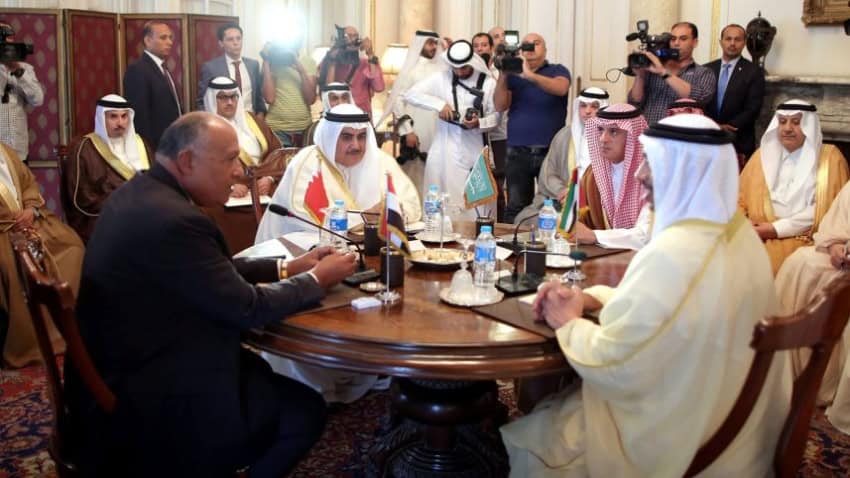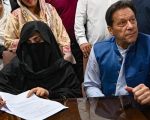CAIRO – The four Arab nations embroiled in a diplomatic crisis with Qatar have dismissed Doha’s response to their demands as “not serious,” and have pledged to continue to keep the Gulf state under political and economic sanctions until it changes its policies.
Foreign ministers from Egypt, Saudi Arabia, the United Arab Emirates and Bahrain have released statements following a meeting in Cairo on Wednesday, after the latest deadline they had set to Qatar expired on Tuesday night.
Speaking to reporters, Egyptian Foreign Minister Sameh Shukri said that Qatar’s response to the four Arab states’ list of demands, which was passed on via intermediary Kuwait on Monday, was “generally negative” and failed to “lay the foundation for Qatar’s reversal of the policies it pursues.”

Shukri also accused Qatar of failing “to realize the gravity of the situation,” Arab media reported.
The Qatari foreign minister said earlier on Wednesday the siege of the country by Arab states is “clear aggression and insult,” and the crisis should be solved through “dialogue, no blockade.” This comes as Arab foreign ministers involved in the crisis meet in Cairo.
Qatari Foreign Minister Sheikh Mohammed bin Abdulrahman al-Thani spoke at the London-based Chatham House international affairs think tank, saying the country has “the highest per capita GDP in the world, a world cup to look forward in 2022.”
Qatar “wasn’t built on oppression, fear, censorship, has an independent view on global and regional events,” the official added. Also, the country successfully “mediated in 10 international portfolios in the course of the last 8 years,” without “interfering in the internal affairs of others.”
However, this did not help the country avoid a massive “smear campaign” in the media that “reached its peak on May 24, when the state news agency was hacked and fake quotes [from top officials] appeared on its website.”
Saudi Arabia and the UAE used it to launch what the Qatari foreign minister called an unjustified blockade. Qatar said that the countries gave it a list of 13 demands, including curtailing the freedom of expression, reducing defense capabilities, and shutting down Qatari media such as Al Jazeera.
Sheikh Mohammed bin Abdulrahman al-Thani branded the move as an attempt to make Qatar “surrender our sovereignty” – “something Qatar will never do.”
Qatar remains “open for dialogue, not an ultimatum,” as the country’s authorities believe that “citizens everywhere should have the right to a government that is responsive to their needs,” and their country, despite not being a democracy, caters to these needs.
“That’s why Qatar wasn’t alarmed and threatened by the Arab Spring movement [back in 2011],” the Qatari Foreign Minister said.
The UAE Minister of State for Foreign Affairs, Dr Anwar Gargash, said in a tweet that Qatar faced “greater isolation, incremental measures and reputational damage” if it did not heed the Arab demands.
https://twitter.com/AnwarGargash/status/882653419714080768
https://twitter.com/AnwarGargash/status/882655785062461441














